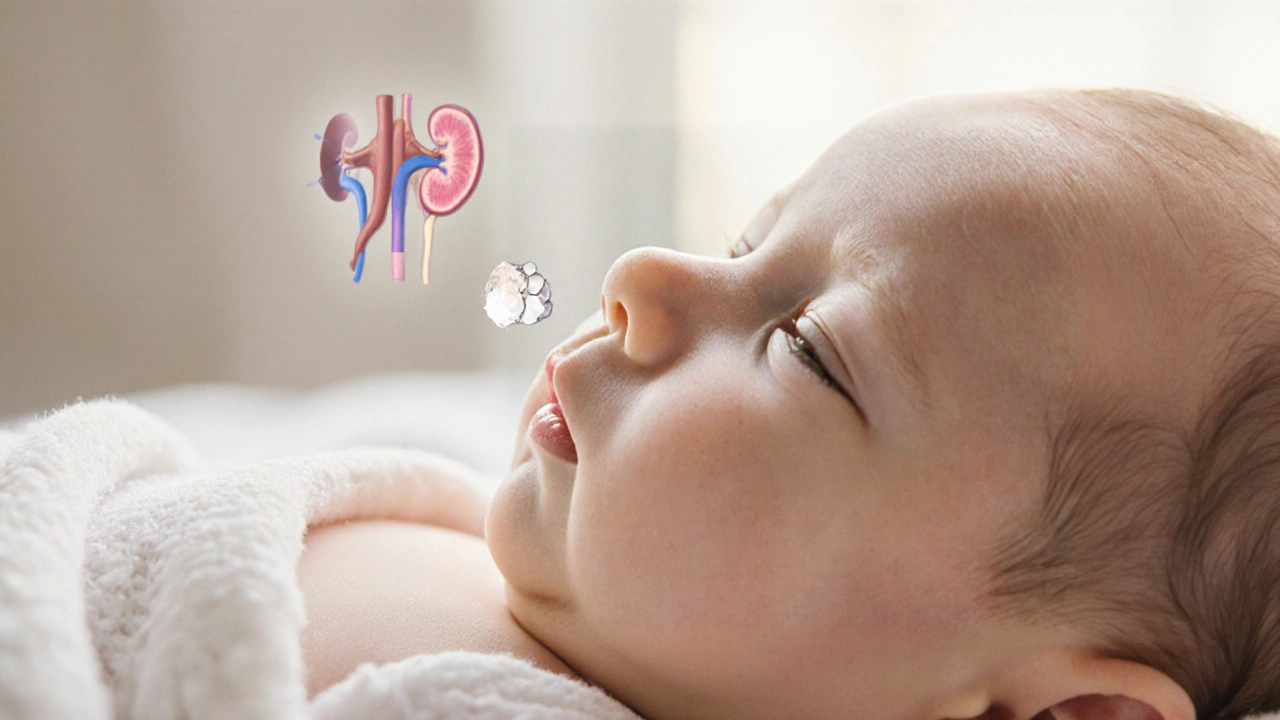Infant Sodium: Why It Matters and How to Get It Right
When talking about infant sodium, the amount of sodium (salt) a baby consumes during the first year of life. Also known as baby salt intake, it plays a crucial role in fluid balance and nerve function. Too much can push blood pressure up, while too little may hinder growth. The UK health agencies set clear limits, so parents have a solid benchmark to follow.
Understanding infant nutrition, the overall dietary pattern that supports a baby's growth and development is the foundation for managing sodium. Infant nutrition includes breast milk, formula, and the gradual introduction of solid foods. Each source contributes a different sodium load, and the balance changes as the baby ages. Knowing how these pieces fit together helps you stay within the recommended daily allowance.
How to Manage Sodium in Your Baby's Diet
The recommended daily allowance, the official limit of sodium an infant should consume each day in the UK is about 120 mg for babies under six months and 370 mg for those six to twelve months. This figure guides everything from choosing formula to picking ready‑made baby meals. When you compare a product's label to the allowance, you can instantly see if it fits the safe range.
baby food, commercially prepared purees, porridges and snacks for infants is often the biggest surprise source of sodium. Many brands add a pinch of salt to improve flavor, but a single serving can already reach half the daily limit. Opt for low‑sodium versions or make homemade purees where you control the ingredients. This simple swap reduces the risk of excess sodium without sacrificing nutrition.
Health risks linked to infant sodium are more than just numbers on a label. Studies in the UK show that high sodium intake in early life can set the stage for higher blood pressure later on, increasing the chance of heart disease. On the flip side, inadequate sodium may lead to hyponatremia, causing fatigue, irritability, and poor feeding. Both extremes highlight why careful monitoring matters.
Guidelines from the NHS and the British Nutrition Foundation stress that sodium guidelines, official recommendations for safe sodium consumption in infants are not just for doctors—they're tools for everyday parents. The advice includes checking labels, prioritizing fresh foods, and avoiding added salt in home‑cooked meals. By treating the guidelines as a checklist, you turn abstract numbers into actionable steps.
One practical tip is to set up a weekly “sodium audit.” Write down each food you give your baby, note the sodium content, and total it up at the end of the week. If you exceed the allowance, look for easy swaps—like swapping a seasoned snack for a plain rice cereal. Over time, this habit builds instinctive awareness of how much salt is too much.
Another common question is whether breast milk or formula provides enough sodium on its own. Breast milk naturally contains low sodium levels that meet a newborn’s needs, while most standard formulas are formulated to stay within the recommended range. Problems usually arise when solid foods are introduced without attention to their salt content. That’s why the transition phase is the perfect time to reinforce low‑sodium choices.
Finally, remember that taste preferences develop early. Babies who grow up with less added salt are more likely to enjoy the natural flavors of foods like vegetables and fruits. This long‑term benefit aligns with broader public health goals of reducing overall salt consumption across the population.
Below you’ll find a curated collection of articles that dive deeper into each of these areas— from choosing the right baby formula to spotting hidden sodium in store‑bought purees. Explore the insights, compare expert tips, and equip yourself with the knowledge to keep your infant’s sodium intake safe and balanced.

Why Babies Shouldn't Have Salt: Risks & Guidelines
Learn why infants should avoid added salt, the health risks of excess sodium, and practical tips to keep your baby's diet safe and nutritious.
view more




